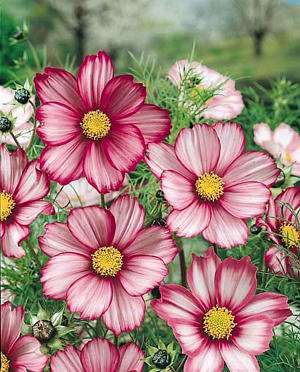Stamp: Hibiscus - Overprinted (Anguilla 1976)
Hibiscus - Overprinted (Anguilla 1976)
10 February (Anguilla ) within release New Anguillan Constitution goes into circulation Stamp Hibiscus - Overprinted face value 60 East Caribbean cent
| Stamp Hibiscus - Overprinted in catalogues | |
|---|---|
| Stanley Gibbons: | Sg: AI 236a |
Stamp is square format.
Italic second 'O' in 'Constitution'.Also in the issue New Anguillan Constitution:
- Stamp - Boat Building - Overprinted face value 40;
- Stamp - Boat Building - Overprinted and Surcharged face value 3;
- Stamp - Boat Building - Overprinted and Surcharged face value 3;
- Stamp - Boat Building - Overprinted and Surcharged face value 3;
- Stamp - Boat Building - Overprinted and Surcharged face value 5;
- Stamp - Brown Pelican (Pelecanus occidentalis) - Overprinted face value 5;
- Stamp - Cottage Hospital - Overprinted face value 15;
- Stamp - Ferry, Blowing Point - Overprinted face value 4;
- Stamp - Frangipani - Overprinted face value 2.50;
- Stamp - Green Sea Turtle (Chelonia mydas) - Overprinted face value 10;
- Stamp - Hibiscus - Overprinted face value 60;
- Stamp - Man-o'-War (Fregata magnificens) - Overprinted face value 1;
- Stamp - Public Library - Overprinted face value 20;
- Stamp - Public Library - Overprinted and Surcharged face value 10;
- Stamp - Spear Fishing - Overprinted face value 1;
- Stamp - Spear Fishing - Overprinted and Surcharged face value 2;
- Stamp - St. Gerard's Church - Overprinted face value 10;
- Stamp - St. Mary's Church - Overprinted face value 6;
- Stamp - Sunset, Blowing Point - Overprinted face value 25;
Stamp Hibiscus - Overprinted it reflects the thematic directions:
A flower, sometimes known as a bloom or blossom, is the reproductive structure found in plants that are floral (plants of the division Magnoliophyta, also called angiosperms). The biological function of a flower is to effect reproduction, usually by providing a mechanism for the union of sperm with eggs. Flowers may facilitate outcrossing (fusion of sperm and eggs from different individuals in a population) or allow selfing (fusion of sperm and egg from the same flower). Some flowers produce diaspores without fertilization (parthenocarpy). Flowers contain sporangia and are the site where gametophytes develop. Many flowers have evolved to be attractive to animals, so as to cause them to be vectors for the transfer of pollen. After fertilization, the ovary of the flower develops into fruit containing seeds. In addition to facilitating the reproduction of flowering plants, flowers have long been admired and used by humans to beautify their environment, and also as objects of romance, ritual, religion, medicine and as a source of food.
Flora is the plant life occurring in a particular region or time, generally the naturally occurring or indigenous—native plant life. The corresponding term for animal life is fauna. Flora, fauna and other forms of life such as fungi are collectively referred to as biota. Sometimes bacteria and fungi are also referred to as flora, as in the terms gut flora or skin flora.
Tourism is travel for pleasure or business; also the theory and practice of touring, the business of attracting, accommodating, and entertaining tourists, and the business of operating tours. Tourism may be international, or within the traveller's country. The World Tourism Organization defines tourism more generally, in terms which go "beyond the common perception of tourism as being limited to holiday activity only", as people "traveling to and staying in places outside their usual environment for not more than one consecutive year for leisure, business and other purposes". Tourism can be domestic or international, and international tourism has both incoming and outgoing implications on a country's balance of payments. Today, tourism is a major source of income for many countries, and affects the economy of both the source and host countries, in some cases being of vital importance.



